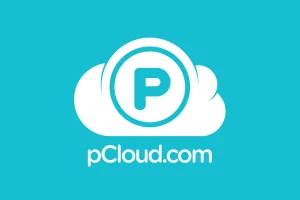Online cloud storage services have revolutionized the way individuals and businesses manage their digital data. These services, provided by companies like Google Drive, Dropbox, Microsoft OneDrive, and Amazon Web Services (AWS), offer users a secure and convenient means of storing, sharing, and accessing their data from anywhere with an internet connection.
One of the primary benefits of cloud storage is its accessibility. Users can upload files, documents, photos, and videos to the cloud, and then retrieve them on various devices, such as computers, smartphones, and tablets. This versatility enhances productivity and collaboration, as multiple users can work on the same document simultaneously, irrespective of their physical location.
Security is a paramount concern for cloud storage providers. They employ robust encryption techniques to safeguard data, protect against unauthorized access, and mitigate potential data loss due to hardware failures. Many cloud storage services also offer data recovery options, ensuring that even accidentally deleted files can be retrieved.
Best Online cloud storage services of 2023
1. iDrive

iDrive is the ideal solution for individuals and businesses seeking a comprehensive cloud backup and storage service. Its primary focus is on providing backup services for small businesses, but it is equally effective for personal cloud storage and file sharing needs.
What sets iDrive apart from many other cloud backup services is its flexibility. It doesn’t restrict you to a single computer; instead, you can utilize one account to back up Windows and macOS desktops, Android smartphones, iPhones, tablets, and even network drives. While it does offer a Linux backup option designed for servers, there is currently no dedicated desktop Linux storage client available. Nevertheless, you can use its web interface to manually upload files if needed.
Presently, iDrive offers a highly attractive deal, offering the most storage for your money. For instance, it serves as my go-to for backing up my extensive collection of 1930s and ’40s movies.
Typically, iDrive commences with a free 10GB offer, which is decent. However, if you require more comprehensive backup capabilities, their Personal iDrive plans are where the real value lies. These plans start at $70 per year for 5TB or an even more economical option of $105 annually for 10TB. Additionally, there are business packages available with unlimited users, but these come at a higher cost for smaller storage capacities.
2. Nextcloud

Nextcloud is an open-source software program that empowers users to establish their personal cloud storage service by utilizing their existing servers and hard drives. This DIY cloud solution is designed for individuals who prioritize security and privacy.
With Nextcloud, you can create your cloud storage either on an office server or external servers of your choice. The storage capacity it provides is entirely customizable and depends on your specific needs. For instance, I personally utilize a 4TB Nextcloud drive in my office and an additional terabyte on my co-hosted server rack. However, it’s worth noting that while Nextcloud is relatively straightforward for Linux-savvy users to set up, it might present challenges for those with less technical expertise.
Nextcloud has also been undergoing a transformation. It initially started as a standalone Infrastructure-as-a-Service (IaaS) file storage cloud but has since expanded to offer additional services, evolving into an all-in-one office suite similar to those provided by Google and Microsoft. The latest iteration, Nextcloud 21, is notably faster than its predecessors.
Nextcloud is available in both free and business editions. The free version allows users to configure it on their own computers, providing storage capacity equal to what they have available on their machines. Alternatively, for those who prefer not to manage it themselves, there is the business version, Nextcloud Enterprise, which includes basic support for up to 100 users at a cost of €36 ($37.80) per user per year.
3. pCloud

Free storage: pCloud provides an initial 4GB of storage at no cost, but you can expand it to a maximum of 10GB.
I’m typically cautious when it comes to “lifetime” subscriptions for any product or service, particularly in the realm of computer services. However, with nine years of successful operation, I am inclined to grant the Switzerland-based pCloud the benefit of the doubt.
Another appealing aspect of pCloud is its compatibility with a range of operating systems, including Linux, macOS, and Windows, along with dedicated apps for Android and iOS smartphones.
Initially, pCloud offers 4GB of free storage, with opportunities to increase this by 1GB at a time. You can achieve this by installing a desktop application, a smartphone app, storing your smartphone’s videos and photos on pCloud, and encouraging others to subscribe to pCloud. This way, you can maximize your free storage to 10GB.
For those who require more substantial storage, pCloud presently offers the option to secure 500GB of storage permanently with a one-time payment of $199, or 2TB for $399, which is an attractive deal.
For business users, pCloud’s services start with 1TB for $96 per user per year. Alternatively, you can opt for a lifetime plan, available at $175 for Premium and $350 for Premium Plus. The pCloud for Business package offers 1TB of storage per user, beginning at $287.64 per year, with each additional user receiving their individual terabyte of storage.
4. Box

Utilizing Box cloud storage involves securely saving files on Box’s distant servers, commonly referred to as the cloud, instead of or in conjunction with keeping those files on your local hard drive. (It’s worth noting that Box also provides certain features unrelated to storage, but these aspects fall outside the scope of this specific review of Box cloud storage.)
Box is a form of cloud storage service primarily designed to cater to the needs of business and enterprise users. Nevertheless, it also presents options for individual users. The following outlines the key features that come with Box:
- Box offers remote file storage, allowing users to store and access their data from any location with an internet connection.
- It provides features and capabilities intended to meet the specific requirements of business and enterprise users.
- Box has various tiers or plans designed to accommodate individual users with diverse storage and collaboration needs.
The free tier of Box provides up to 10 GB of cloud storage. You will have a limit on the size of individual file transfers at 250 MB.Box aims the Personal Pro tier at individual users, giving them up to 100 GB of cloud storage for $10 per month. Users must adhere to the maximum file transfer size of 5 GB in this tier.
5. Backblaze

Backblaze demonstrates that top-tier backup software doesn’t have to be costly or intricate. It offers a user-friendly setup process and provides unlimited backup storage for a single PC. Its comprehensive approach of backing up everything will likely attract beginners, although more experienced users might desire greater control over their file selection. In our assessments, the service performed admirably in terms of upload speed; however, it lacks features such as folder synchronization and mobile device backup. While Backblaze may suit the needs of certain individuals, others may discover superior value in backup services like IDrive, the recipient of the Editors’ Choice award, or ShadowProtect SPX Desktop, which offers full disk image backups.
What Is the Pricing of Backblaze?
For individuals managing a single computer, Backblaze proves to be an economical choice when compared to alternative online backup services. Backblaze’s pricing structure includes a $7 monthly plan, a $70 yearly plan, and a two-year plan for $130, all of which grant unlimited cloud backup storage for a single computer. Unlike Editors’ Choice winner IDrive, which provides a permanent free 10GB account, or Livedrive’s 5GB account, Backblaze does not offer a free account tier. However, they do offer a 15-day trial period for interested users to explore the service.

